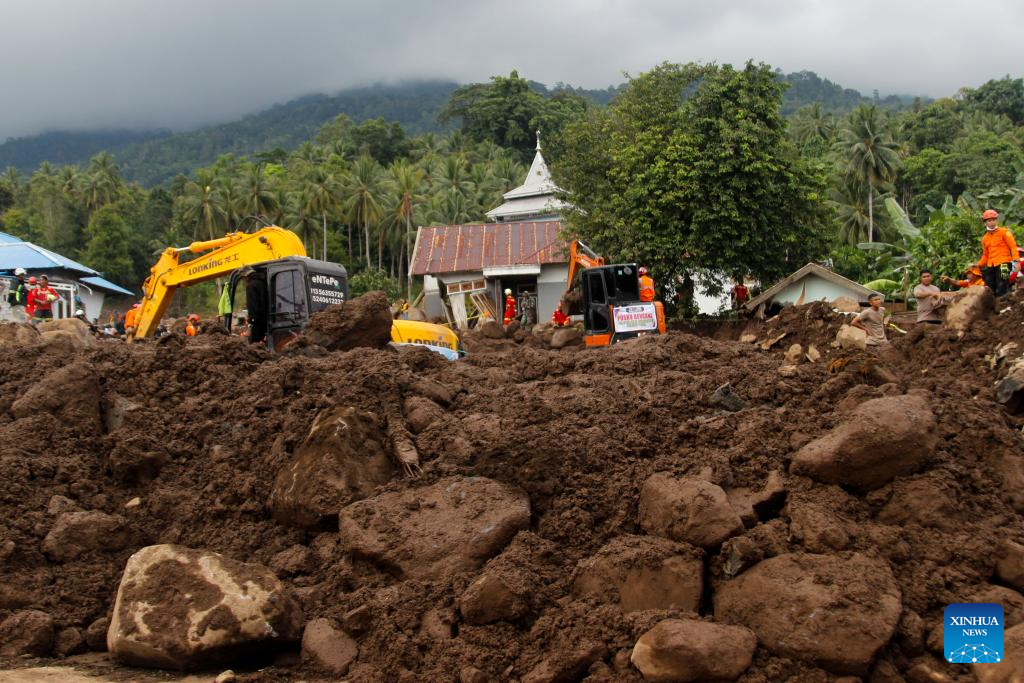
This photo taken on Aug. 27, 2024 shows rescuers in operation at flood-hit Rua village in Ternate, North Maluku, Indonesia.
The Indonesian government is likely to consider relocating residents living in dangerous zones in North Maluku province after flash floods and landslides recently struck the area, killing 19 people, a government minister said on Tuesday. (Photo by Rifki Anwar/Xinhua)
JAKARTA, Aug. 27 (Xinhua) -- The Indonesian government is likely to consider relocating residents living in dangerous zones in North Maluku province after flash floods and landslides recently struck the area, killing 19 people, a government minister said on Tuesday.
Coordinating Minister for Human Development and Culture Muhadjir Effendy emphasized that areas affected by the disaster, particularly in Ternate city, have long been vulnerable as water routes and volcanic material paths from Mount Gamalama. He explained that such conditions have existed for hundreds of years, making relocating residents from these areas necessary to prevent further disasters.
Effendy made these remarks during a visit to Ternate, the city hardest hit by the flash floods and landslides on Sunday. The disaster left eight people injured and caused significant destruction to homes and infrastructure.
"To avoid a recurrence, these areas must be designated as non-residential zones," Effendy said in a statement issued by the National Disaster Management and Mitigation Agency (BNPB). He added that even those currently unaffected but living in danger zones may need to be relocated for their safety.
During the same visit, BNPB head Suharyanto announced that the government would provide financial assistance to residents whose homes were destroyed by the disaster.
Mount Gamalama, a 1,715-meter-high active volcano in North Maluku province, continues to pose risks to nearby residents. ■
